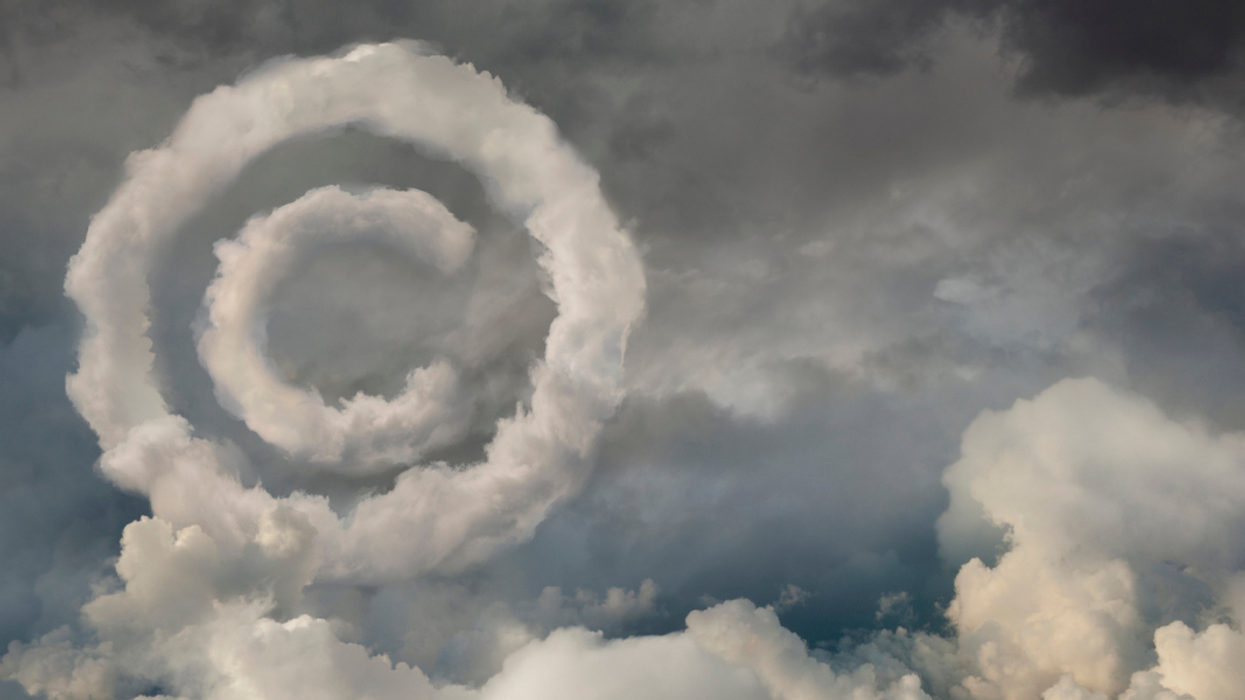Samantha Close is the Director of the Digital Communication and Media Arts program at DePaul University and a Public Voices Fellow through The OpEd Project.
A new survey of the Milky Way galaxy recently revealed billions of objects in the celestial landscape. There truly is nothing new under the sun and U.S. copyright laws need to reflect that.
Many assume copyright is about plagiarism: taking credit for someone else’s work. But that’s not the origin of copyright in the United States.
The U.S. constitution’s “Copyright Clause” states that Congress will have the power “to promote the Progress of Science and useful Arts, by securing for limited Times to Authors and Inventors the exclusive Right to their respective Writings and Discoveries.”
Essentially, the driving force of American copyright is encouraging creators to make things by allowing them to profit from their work. Copyright laws must return to these roots.
2023 is already a scary and contentious time for many creators. In one corner of the galaxy are corporations tightening their control over intellectual property.
For example, Wizards of the Coast, the company which owns the popular tabletop roleplaying game system Dungeons & Dragons, recently launched a firestorm of controversy when its new, much more restrictive license leaked to the press.
Its terms were so far-reaching that some lawyers questioned whether the company even had copyright over the production it was trying to claim. (They’ve since changed direction.)
From the other end of the galaxy are artificial intelligence generators that can create new work directly from a text prompt.
Midjourney, one AI system, intakes keywords and phrases from its users and outputs complex visual images in seconds. The infamous Chat GPT can write anything from computer game code and a poem to your child’s next school assignment. This only complicates copyright issues for human artists.
Corporate overreach matters because artists are rarely the ones who actually end up owning their own copyright. In this field, work is commonly on a “for hire” basis; whoever commissioned the creator owns the copyright to the work.
In his life, Michelangelo Bonaparte did not own the copyright to his timeless work on the ceiling of the Sistine Chapel, and neither does his estate now. Nippon Television Corporation of Japan does.
This year will be a turning point for creators. The original Mickey Mouse copyright, Ub Iwerks’ Steamboat Willie illustration, expires according to the terms of the Sonny Bono Copyright Term Extension Act —which coincidentally extended US copyright just at the point when Mickey Mouse would have otherwise left the Disney Corporation’s control.
The U.S. Supreme Court is deliberating on the Andy Warhol Foundation for the Visual Arts, Inc. v. Goldsmith. That case will speak volumes on whether mechanical reproduction techniques, like silk-screening, are enough to constitute “transformational” use of original images.
The first two AI generator lawsuits have been filed in the U.S., one against the code generator CoPilot and another against the image generators Stability AI, Midjourney, and DreamUp. Stock image site Getty Images is filing in the UK.
It’s only in creative fields where the original investment is relatively low, such as writing, or fields protected by tradition, such as academia, where the actual creator usually owns their copyright.
But even this is changing, as new policies claim copyright over intellectual property created on “their time.” Some universities have even used recorded video lectures so a professor can teach online after they’re dead.
When original creators aren’t the ones benefiting from copyright, its purpose of encouraging creation is lost. Worse than that, corporate owners like Disney and Wizards of the Coast often discourage or outright sue artists trying to make new work based on their cultural heritage.
This copyright system has functioned over the years because creators at least got paid once, either when they worked for hire or when their work was licensed. With AI art generators like Midjourney, it is possible to make complex, sophisticated images with about 150 words and half an hour. It’s difficult to imagine how human artists can compete.
None of these systems would be where they are, of course, without human artists in the first place. “Artificial” intelligence only seems like a property of the technology.
These systems are powered half by code and half by vast archives of “training data” provided by people. Experimenting with Midjourney demonstrates that by far the easiest way to produce good work is to ask the system to replicate existing styles or even specific artists.
Artists can find out if their own text or images were scraped into these training databases and opt out. But there’s no mechanism to compensate creators for past harms or the likely impact on their future livelihoods.
Neither corporate overreach nor AI will stop artists from making art. If the internet has proved anything, it’s that people will create and share their work for the sheer joy of it, rather than because they’re getting paid.
What both of these forces will do, however, is prevent artists from making a living at their trade—the exact thing copyright is supposed to ensure.
Many compare the current copyright situation to music when free file-sharing sites like Napster reigned--a situation eventually resolved through paid services like Spotify. But Spotify and its ilk are notoriously poor at compensating the artists whose songs it streams.
Policymakers in Congress can help stop corporate overreach by passing laws like the Copyright Clause Restoration Act of 2022 that brings copyright back to a reasonable term limit. Artists can continue to advocate and legally pursue their rights to earn income for their creative efforts. The courts can decide to return copyright to its origins.
Payment is due.



















Marco Rubio is the only adult left in the room